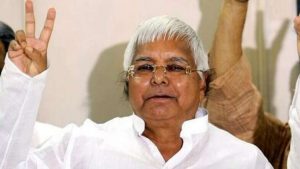
Bihar Chief Minister Nitish Kumar, who has been pushed to the fringe in his policy on migrant workers from Bihar stranded in other parts of the country, today announced that each worker returning home by train will be reimbursed the full ticket fare and will get an additional aid of Rs 500 to ensure they are not out of pocket for their journey home. “We took the decision to ensure free journey back home for our students and now, a similar facility is being extended to migrants labourers too,” said Mr Kumar.
The Bihar leader’s intervention comes after he has been accused – not just by the opposition but by top leaders of his ally, the BJP – of a heartless approach. In recent weeks, as other states petitioned the centre to repatriate their workers, Mr Kumar urged they remain where they are; they aren’t sufficient facilities, he argued, to ensure the workers are isolated for 14 days, as required, upon their return. While his counterparts from states like Uttar Pradesh organised buses to bring back students and workers from other cities, Mr Kumar held out for trains that would be facilitated by the union government.
Mr Kumar’s revised stand came hours after Tejashwi Yadav, the 30-year-old leader of Bihar’s main opposition party, offered to pay for all the passengers of 50 trains.
“Respected Nitish Kumar-ji, the RJD is ready to bear the fare on behalf of poor labourers for 50 special trains because a ‘double engine government’ is not capable (of doing that). Please ensure arrangements at the earliest. Sushil Modi-ji, tell us the full amount. The cheque will be sent immediately. Anyway, you are fond of looking at the ledger,” Mr Yadav tweeted in Hindi.
When a countrywide lockdown was announced by Prime Minister Narendra Modi on March 24 with just four hours’ notice, lakhs of migrant workers were stuck in the cities where they labour as daily wagers. With their earnings cut off abruptly, many of them decided to head home. The complete unavailability of any public transport meant they had to walk, hundreds of kilometres, in some case, without food or water, occasionally carrying a child or two in their arms, to return to their villages.
Leave a Reply